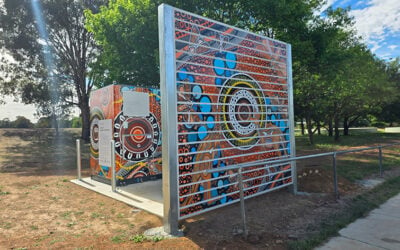
The development of data centres has emerged as a possible lifeline for ongoing projects in the battery energy storage system (BESS) industry.
While solar PV and wind faced significant challenges from the ‘One, Big, Beautiful Bill Act’ (OBBBA) and reduced investment tax credit incentives, energy storage emerged relatively unscathed.
The sector maintained its existing mid-2030s phaseout timeline for investment tax credits (ITCs) and production tax credits (PTCs), though with new restrictions barring companies receiving material assistance from Chinese entities deemed “foreign entities of concern” (FEOC) from accessing tax credits.
This presents challenges for an industry heavily reliant on Chinese technology and manufacturing, but energy storage’s designation as a “dispatchable” technology by the government, alongside geothermal and nuclear, has positioned it more favourably than variable renewable sources.
Try Premium for just $1
- Full premium access for the first month at only $1
- Converts to an annual rate after 30 days unless cancelled
- Cancel anytime during the trial period
Premium Benefits
- Expert industry analysis and interviews
- Digital access to PV Tech Power journal
- Exclusive event discounts
Or get the full Premium subscription right away
Or continue reading this article for free
The driving force behind energy storage’s resilience lies in unprecedented load growth, particularly from AI-powered data centres, which have “intense power fluctuations” that are “unlike anything we’ve seen in cloud data centres previously,” according to FlexGen’s Jason Abiecunas.
Industry leaders argue that regardless of climate policy changes, economic fundamentals favor energy storage deployment as the fastest and most cost-effective solution to meet surging electricity demand.
Data centre projects, however, do come with concerns.
According to the non-profit Environmental and Energy Study Institute (ESSI), “Large data centres can consume up to 5 million gallons per day, equivalent to the water use of a town populated by 10,000 to 50,000 people.”
As more AI-focused data centers grow in size and number, their water use is rising along with energy consumption and carbon emissions.
Although a possible buoy has been introduced to the BESS industry, the longevity of these projects remains uncertain. Additionally, with increased reports about a potential AI bubble, many are questioning whether it will eventually burst.
Regardless, companies are still taking advantage while they can.
In this case, OpenAI is teaming with Oracle and Related Digital on a 1GW data centre campus, Prevalon is teaming up with Emerson to provide data centre support, and EPC Power will provide ON.energy with power converters supporting data centre development.
OpenAI, Oracle, and Related Digital planning 1GWh data centre campus in Michigan
AI company, OpenAI, technology company Oracle, and data centre development firm Related Digital have announced plans to develop a data centre campus with over 1GW of capacity in Saline Township, Michigan.
The multi-billion-dollar investment in the project, expected to start construction in early 2026, is part of the previously announced partnership between OpenAI and Oracle to deliver an additional 4.5GW of Stargate capacity.
Michigan real estate office, The Perna Team, wrote of the project, “With over 1GW of computing capacity, the complex will draw an estimated 1.4GW of electricity at full tilt. Utility DTE Energy notes this is about 25% of its entire current power generation capacity, roughly equivalent to the output of a mid-sized nuclear reactor.”
This project has been dubbed The Barn, after a historic red barn on the site of the project.
The companies state that The Barn, financed by a group of prominent private investors and financial institutions, is expected to generate more than 2,500 union construction jobs.
Ongoing, Related Digital and Oracle expect to create more than 450 jobs onsite collectively, as well as 1,500 jobs county-wide, to support the project, along with thousands of indirect jobs across Michigan and the US.
The data centre campus will utilise a closed-loop cooling system, which Related Digital claims limits daily water use to levels comparable to an office building.
Utility DTE Energy is supplying 100% of the power to the project using existing resources augmented by a new battery storage investment, financed entirely by the project, in a way that “ensures no impact on DTE’s existing customers’ energy supply or rates.”
DTE further claims that its customers will benefit from the project, contributing its share to the fixed costs of maintaining and improving the grid.
Pending approval by the Michigan Public Service Commission (MPSC), The Barn will consist of three 550,000 square-foot single-story buildings. It will be LEED certified.
Prevalon Energy partners with Emerson to support data centres
Dedicated BESS spin-out of Mitsubishi Power Americas, Prevalon Energy, and software and engineering firm Emerson are partnering to support hyperscale, colocation, and enterprise data centres.
The collaboration brings together Prevalon’s HD5 energy storage platform and insightOS energy management system (EMS) with Emerson’s Ovation automation platform.
Speaking with ESN Premium shortly after announcing insightOS, Prevalon’s president and CEO, Thomas Cornell, said:
“There’s a lot of buzz words — a lot of these control systems, they all share a lot of the same features, functions and benefits. But I think the things that really make our system stand out, and when I talk to our controls engineers, the number one thing they say, is that it works. It’s a very robust system, and it works.”
Through this teaming agreement, Prevalon and Emerson will collaborate to seek opportunities for integrating advanced control, automation, and energy storage systems for data center clients globally.
The companies will align their marketing, development, and customer engagement efforts to promote the adoption of new technologies in data center applications.
Cornell has also discussed Prevalon’s data centre ambitions in another interview with ESN Premium in September.
“They’re very large projects with different use cases for the batteries. The batteries on those are going to be anywhere from probably 500MW to 600MW with a two-hour duration.”
He continued, “The gas turbines are going to be at base load, so they’ll be fixed, but the data centre load swings based on the level of computing that’s going on, and the batteries are going to be there to pick up and match the load.”
In June, Prevalon’s 80MW/320MWh Happy Valley BESS entered commercial operations at utility Idaho Power’s Happy Valley battery storage project.
Earlier this year, the company signed a contract with Idaho Power for a 200MW/800MWh BESS. The agreement details long-term maintenance and remote monitoring services, with deployment scheduled for 2026.
EPC Power and ON.Energy partnering on grid-safe AI infrastructure
Manufacturer of power conversion systems EPC Power, and system integrator and project developer, ON.energy, have announced a strategic partnership seeing EPC supplying ON with power converters.
ON.energy will incorporate EPC Power’s hardware into its ‘AI UPS’ platform, capable of scaling from MWs to GWs and supporting runtimes of up to 8 hours.
EPC states that AI UPS is designed for hyperscale AI computing, safeguarding both grid-connected and off-grid systems by absorbing rapid AI transients and load fluctuations, while providing voltage and frequency ride-through capabilities that help speed up interconnection processes.
ON.energy began its journey in Latin America, specifically in the commercial and industrial (C&I) energy storage market, and has since expanded into the US, focusing on distributed and utility-scale portfolios.
ON.energy functions through two main business models. The first is as a system integrator and engineering, procurement and construction (EPC, not to be confused with the EPC Power) contractor, providing solutions to generators, third-party developers, and large corporations. Its primary focus is on C&I projects for critical infrastructure and data centres across six Latin American countries and Texas in the US.
The second is in leveraging its system integrator and EPC capabilities for its own project portfolios, which the company develops, builds, owns and operates in select US markets, predominantly for front-of-the-meter applications.
In January, ON.energy closed a US$77.6 million construction credit agreement with Pathward, NA and BridgePeak Energy Capital to build its 160MWh Palo de Agua BESS portfolio.
The portfolio, planned for development across Texas, encompasses the Poplar, Ft. Stockton, Mesquite, North Pecos, Colorado, Colorado 1, Andrews, Fathead 1, Fathead 2, and Badger BESS projects. All these BESS projects are anticipated to become operational sometime this year, each with a capacity of 9.9MW/20MWh.





